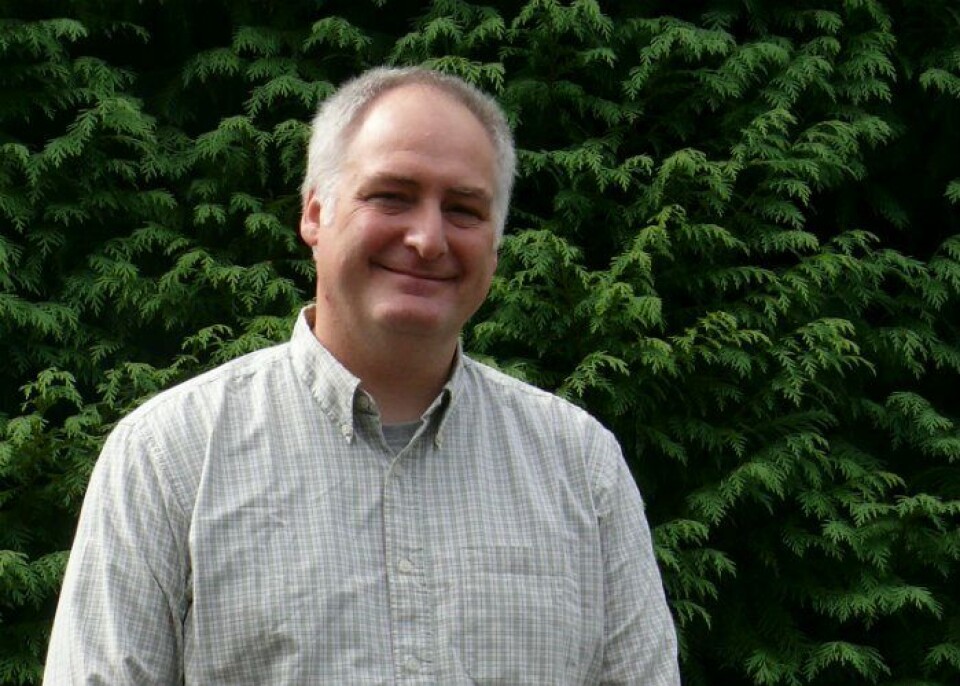
Stirling heads €7 million study
Researchers from Stirling’s Institute of Aquaculture will lead a team of European experts in a €7 million study to establish new strategies and models for sustainable aquaculture growth.
The 4-year Tools for Assessment and Planning of Aquaculture Sustainability (TAPAS) project will create cost-efficient management tools and practices for the European aquaculture sector to investigate the scope of fish and shellfish farming activity in a location, social interactions, potential environmental impacts and any future risks.
Professor Trevor Telfer, of Stirling’s Institute of Aquaculture, is leading the multi-partner study, which starts this month. The team will seek to establish a comprehensive toolbox to support transparent and efficient licensing, and enhance environment sustainability and aquatic food security, while tapping into the potential for food production and jobs.
Professor Telfer said: “As Europe continues to produce millions of tonnes of food each year, we want to ensure this industry is feeding the world in a sustainable way, while taking care of the environment. By developing new, flexible and unified approaches to aquaculture planning we aim to strengthen sustainable growth in the vital marine and freshwater sectors.
“The breadth of experience gained through our 15 Consortium partners allows us to bring together sophisticated technologies, computer models and decision making capabilities into a single, streamlined entity for regulators and producers throughout Europe to use.”
The Consortium will evaluate structures currently in operation across the EU’s seas, lakes and rivers, examining various environments and developing new approaches to deliver computer-based support systems for sustainable aquaculture expansion.
The work is in line with the EU’s Marine Strategy Framework Directive to protect marine environments more effectively and will provide consistent real-time monitoring, observation, early forecasting and management technologies.
The research team will collaborate with industry, regulators, certifiers and other stakeholders to ensure the toolbox they create is accessible, using training and outreach activities to improve the image of European aquaculture and promote an integrated sustainability strategy.
The collaborative work will play a major role in the European Commission’s strategy to achieve smart growth in aquaculture production across the region’s seas. Key drivers for the economy, these waters presently represent approximately 5.4 million jobs and generate a gross added value of almost €500 billion a year.
Scotland’s Minister for Environment, Climate Change and Land Reform, Dr Aileen McLeod, said: “This significant award reinforces Scotland’s reputation as an international centre of excellence at the forefront of aquaculture science, technology and research.
“Scotland, with its world class fish farming sector, generates £1.86 billion of economic activity every year and supports 8,300 jobs. This industry has fantastic potential to achieve further sustainable growth, aided by our cutting edge research capability such as that at Stirling, often in co-operation with international partners.”
Professor Gerry McCormac, University of Stirling Principal and Vice-Chancellor, said: “The Consortium, led by Stirling scientists, is to be congratulated on this impressive €7m grant from the European Commission. This landmark collaborative effort into advancing aquaculture systems on behalf of 15 institutions from 11 European nations is a great achievement.
“The work carried out by the Consortium will help improve sustainable growth in the increasingly valuable marine and freshwater sectors. The Institute of Aquaculture is renowned as a world leader in this field. This multi-million euro award is indicative of the important impact research, carried out by Stirling academics, is having worldwide.”























































